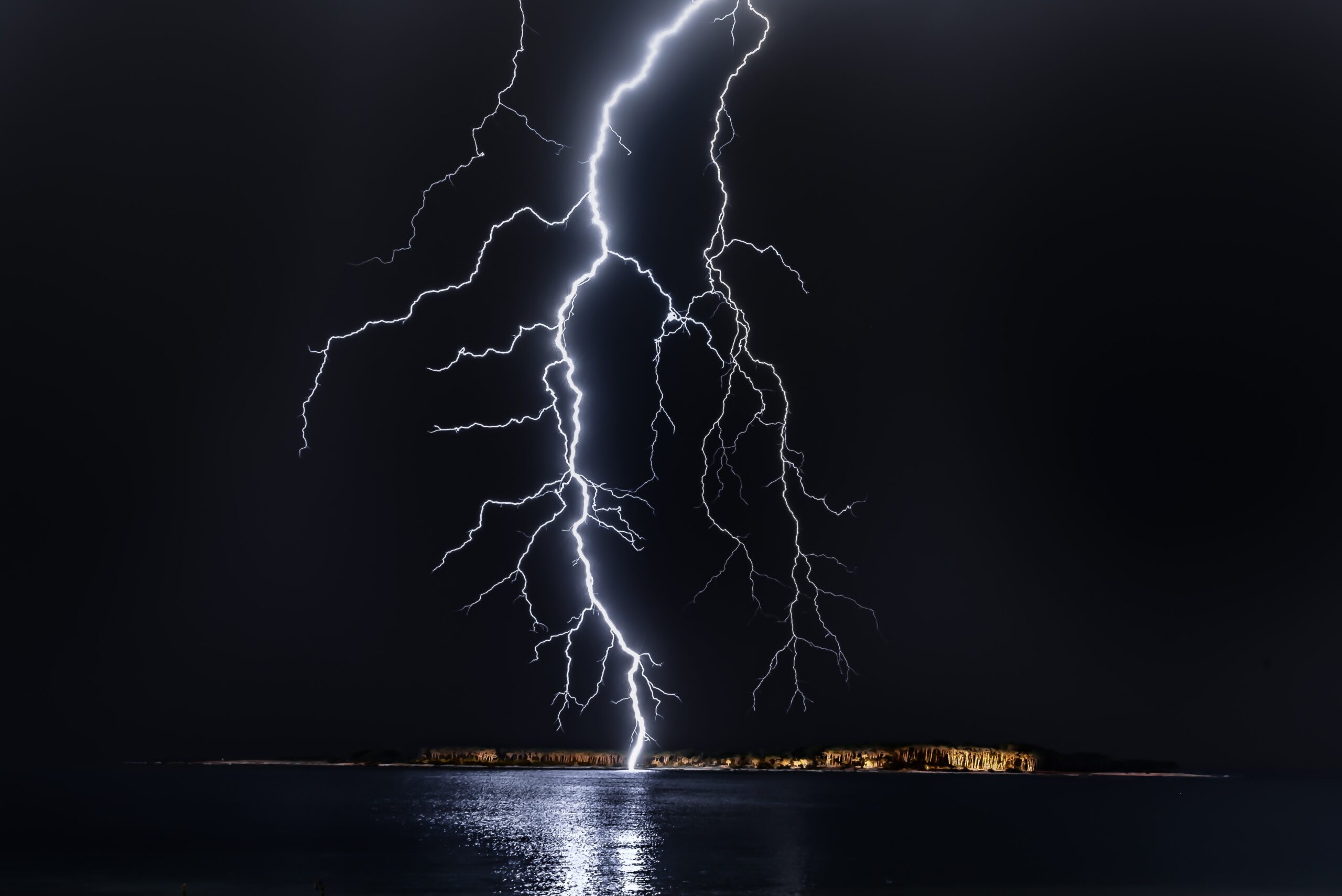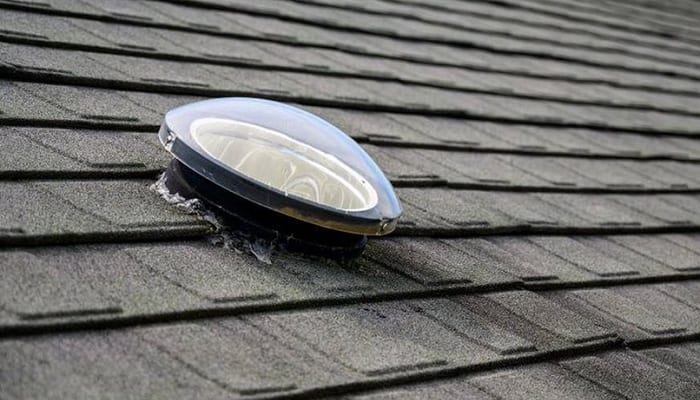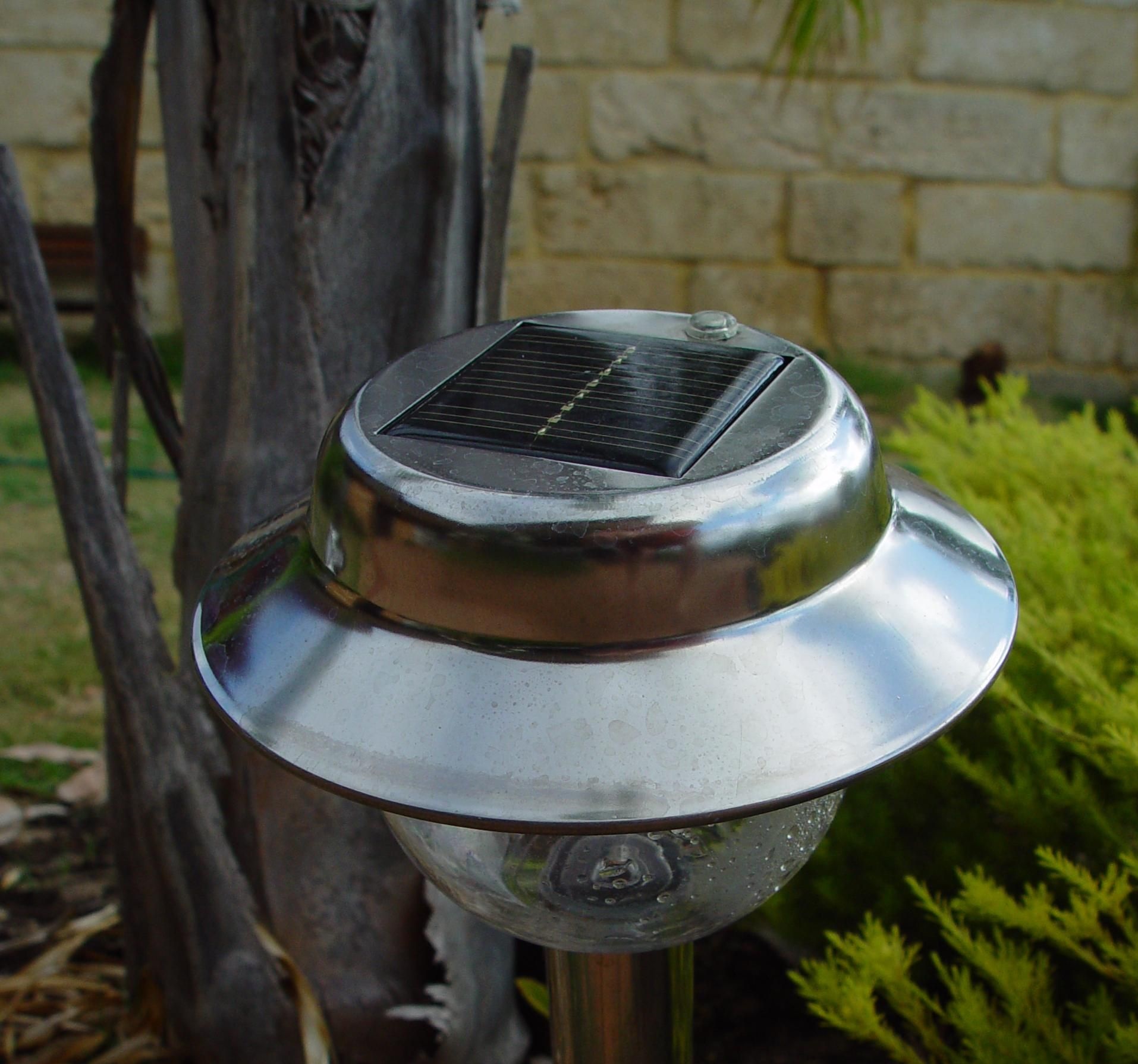If you live in an area that gets a significant amount of lightning, or even a place that gets lightning a few times a year, you probably are wondering if having solar panels on your roof will attract lightning to your home. This can be a scary thought and it is understandable that if solar panels do attract lightning you might be deterred from installing them on your roof.
Throughout this article I will break down all the known research about solar panels and their interaction with lightning: do they attract lightning, are they safe from lightning, what happens if a solar panels is hit by lightning, so that you can have the information necessary to make an informed decision about whether or not to put solar panels on your roof.
Location Matters
Before we talk about solar panels and their interaction with lightning I thought it was prudent to talk about where you live before you get worried about a lightning strike. For example, if you live in Southern California like I do, you really do not need to be worried about your solar panels attracting lightning. This is not because it is not something that could happen but because the amount of lightning that Southern California receives is so minimal that your risk is almost nonexistent.
According to CurrentResults.com, San Diego and Los Angeles are two of the least stormy cities in the US. Due to this, if you live in or around one of these cities in Southern California, you should probably be worrying about other factors that affect your solar panels and not worrying too much about lightning.

One of the factors that you could be concerned with is salt spray and how it affects solar panels efficiency, if you would like to read more about that click here.
How to Check your Location for Lightning
If you have lived in the same area for a decent amount of time you probably know the general trends of weather in your location however, it is still important to know exactly how much lightning you are expected to get each year. In addition to lightning, knowing how much cloud coverage, storms and sunny days your home gets each year are very important factors to consider when deciding to invest in solar panels. For any new solar installation project I am undertaking, I use the calculator at energysage.com to estimate my total energy savings as well as expected energy production from a solar array.
When it comes to understanding my location’s lightning exposure, I like to use local news outlets to get accurate data as close to my solar array as possible. Local new outlets oftentimes will have been around for years and have good historical data of lightning and other weather for a specific location that broader databases might not.
I have found that national weather sites often will generalize locations which is helpful but not as good as a local station that can break down locations by county and even neighborhood at times. Finding a location weather station near your home will give you a good insight to the historical lightning trends of your area as well as the average amount of lightning strikes you can expect to get each year.
Does Lightning Affect Solar Panels?
The next question that we need to consider before talking about whether or not solar panels attract lightning is whether or not lightning even has an effect on solar panels. There are many substances that are designed to attract lightning, however because of their design they are also made to be unaffected by the electric shock.
For example, a lightning rod is a copper rod that is attached to a building and designed to attract lightning, and direct it to the ground safely thus protecting the building and its infrastructure from the potentially destructive effects of the 300 million volts of electricity that lightning produces.
Unfortunately for us in the solar world, solar panels are not quite as impervious to lightning as a lightning rod, and both direct and nearby indirect lightning strikes can have extremely destructive consequences for solar panels if not properly protected.
Due to their complex electrical nature, solar panels are quite vulnerable to a lightning strike and the massive surge of electricity can fry the components of you solar panels rendering them completely useless. In most cases a direct lightning strike is highly unlikely, however the electrical surge from an indirect hit can be just as devastating. As high voltages surge through the wires of a solar panel array conductors can be broken, the array can be fried, and sparks can fly leading to a potential fire hazard.
Clearly lightning can be destructive to solar panels but if you live in an area with little lightning should you still be concerned? What about if you live in an area with lots of lightning but also lots of surrounding buildings? Do solar panels actually attract lightning?
Do Solar Panels Attract Lightning?
Thankfully the myth that solar panels actually attract lightning has been disproven numerous times. The electrical components in solar panel arrays have zero attractive effect on lightning strikes. However this does not mean that you should not worry about lightning strikes if you have solar panels on your building.
As I stated in the previous section, direct and indirect lightning strikes can be extremely destructive to solar panels and it is important for you to protect your investment if you solar panels are in a potentially vulnerable position.
What Is a vulnerable position for my solar panels?
Before I begin this section of the article I want to make sure I am very clear, having solar panels on your building or home will NOT make it more likely to be struck by lightning. This is a common myth that has been perpetuated for years but has been disproven countless times. That being said, because solar panels are expensive and can be ruined by a lightning strike it is important to protect your solar panels if they are in a vulnerable location.
If you know anything about lightning you will know that lightning is more likely to strike elevated positions. If you have solar panels on your home in the middle of farmland, you are at a higher risk of lightning strikes than if you had those panels on a three story apartment building in the middle of New York City surrounded by skyscrapers. If your building is the tallest in the area you have a higher likelihood of your building getting struck by lightning.
My general rule of thumb when evaluating the lightning exposure of my building is to first check the height of nearby buildings. If mine is significantly lower than I feel pretty confident that my risk is low, especially if the building is in a location that gets a small amount of lightning to begin with. However, just because your likelihood of a strike is low does not mean that you should not get lightning protection.

How should I protect my solar panels from lightning strikes?
As I said before the most common way for solar arrays to be damaged by lightning is through the electrical surge from an indirect strike. While direct strikes can be more destructive, the likelihood of a direct strike to a residential solar panel is extremely small. Because of this, the most important thing to do when protecting your solar panels is to install surge protection devices (SPDs) to efficiently dissipate the voltage from a nearby strike.
Aside from surge protection devices there are a number of other ways to protect your solar panels from lightning however these would be installed on a case by case basis depending on your location, lightning exposure, and desired protection levels. Be sure to talk directly with your solar installer before your panels are installed to make sure that you have lightning protection if it is necessary for your area.
Conclusion
Overall I think it is clear to say that no, solar panels do not “attract” lightning, however just because they do not increase your risk of a lightning strike does not mean that that risk is zero. When deciding to invest in solar panels you should first figure out if you area is viable for effective solar panels, from there you should understand your lightning exposure so that, if necessary, you can install lightning protection from you panels and ensure that your panels are not destroyed by a lightning strike.
I hope this article has been informative for you, if you have any suggestions as to what we should write about next please leave it in the comments down below and we will get to it as soon as possible.
Frequently Asked Questions
Do solar panels attract lightning?
No, this is a common myth that has been around for decades but has been disproven countless times. The addition of solar panels to your building or home will not increase that building’s chance of being struck by lightning.
What happens if lightning strikes a solar panel?
Depending on the proximity of the strike to your panels and the level of protection that your panels have, the damage could range from negligible to complete destruction of your panels. Because of the severe damage that lightning can cause it is very important to make sure you install protection for your panels if you live in an area that receives frequent lightning.
Do solar panels need surge protectors?
The short answer to this is yes. While they might not always be necessary it is a good rule of thumb to always install surge protectors to you solar panels to make sure you protect your solar array from getting fried during any type of surge.



